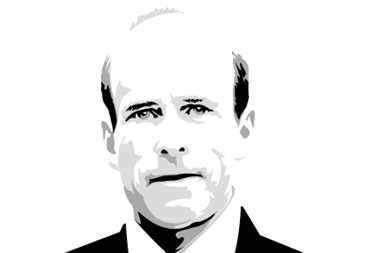Cuts to services will increase the need to mitigate certain risks, like fraud, says Adam Bates
We all recognise that the government needs to cut costs across a range of services. Depending on where the cuts are made, different risks will emerge. It is fundamental that appropriate governance measures are put in place to mitigate against these risks. The governance must address both short-term operational risks, as well as other specific risks such as the increased exposure to fraud.
Put bluntly, ensuring that vital frontline services and critical functions that the public purse pays for are not left exposed and vulnerable to attack or worse still, put people’s lives at risk, will clearly be top of the agenda.
The upside to properly managing the inherent risks that this Review will undoubtedly bring is the long-term benefits that can be achieved in by not only saving costs but also the increased efficiencies in service delivery.”
Fraud to the fore
Basic back office controls help address operational risks. Reducing the cost of the back office can often result in weaker controls opening the door for fraudsters, conmen and other undesirables. Targeted areas for cuts such as benefit systems and internal supplier management controls may leave cracks or holes in the system exposed. Fraudsters may be rubbing their hands in glee, as an open invitation is extended to them to enter the system through the back door.
The Coalition government have also highlighted the need to up the ante on recovering assets from criminals. Actively targeting the profits of criminal activity attacks criminals who attack our societies’ values, but the assets recovered can be used directly in the effective and efficient running of public services. This can only be a good thing for all concerned.
During times of austerity, the need to ensure that the public sector’s risk and compliance systems are in tip-top shape, has never been greater.”
Adam Bates, is the UK head of KPMG’s risk and compliance business.
Ed note: With all this in mind, why not try to spot the fraud on this infographic. And see below for the answers.
Spot the fraud
(A) Winning Contracts
In a tough economy, and faced with stiffer competition for fewer contracts, some companies may be more willing to pay bribes to win deals. One area that is particularly vulnerable to corruption is public procurement. In some emerging markets, paying a bribe to a public official in order to win a contract or facilitate a business transaction is standard practice. The Organisation for Economic Cooperation and Development (OECD) warned recently that, as governments increase their spending on public infrastructure projects to keep their economies ticking over, the incentives to pay bribes are growing. And there is more now regulatory and investor scrutiny on companies to monitor what their suppliers and business partners are doing in these markets to achieve sales.
For companies operating in emerging markets, however, it is easy enough to rationalise bribe paying when everyone else is doing the same thing. The Ernst & Young 2009 European fraud survey revealed that many employees would tolerate unethical behaviour including bribery by their company in order to survive the current economic storm. And the majority of the companies queried said they expected bribery to increase over the next few years.
(B) Cooking the books
Corporate fraud at the top has always been a serious problem. But, over the course of 2008, extraordinarily huge sums of money appear to have been criminally siphoned off by trusted and respected people in positions of power. The Bernard Madoff fraud has been called the largest ever investor fraud committed by a single person—he allegedly stole $64.8bn from innocent investors in his massive New York Ponzi scheme.
Meanwhile, Ramalinga Raju, the founder of Indian outsourcing company Satyam, confessed to a $1bn accounting fraud. Satyam was then crowned “India’s Enron”. Like the infamous energy trading company, it succeeded in fooling investors into believing that it was flourishing, despite having a massive hole in its balance sheet. Price collusion, bid rigging and market sharing are also forms of fraud that senior management may be more tempted to engage in given current market conditions. The European Commission, however, is cracking down on these anti-competitive practices.
(C) Spotting inaccuracies
Astute risk managers and compliance professionals can act as a company’s internal police. They are the ones capable of spotting accounting deficiencies, inaccurate reporting or potential fraud and blowing the whistle. But it is tricky. Paul Moore, the former head of regulatory risk at failed British bank HBOS, described his attempts to restrain the bank’s excessive risk taking. “I was like a man in a rowing boat trying to slow down an oil tanker,” he said. Preventing fraud in the first place is obviously the goal, but companies should be prepared to listen to their whistleblowers and have the systems and procedures in place to properly investigate their claims. Where senior managers have colluded with third parties to misrepresent financial information and statements, fraud can be more difficult to identify.
(D) Rogue trades
When markets are not performing as well as they have in the past, there is less slack and it is much harder to hide fraud. An economic downturn is often the trigger that exposes deception. Bank frauds can sometimes start when traders take bigger risks than they should or try to cover up losses. With fewer people employed, there may be less scope for the segregation of duties that is a key component of internal control.
The losses reported by Societe Generale in 2008 were, perhaps, an early warning of the impact of a declining economy on the risk of fraud and irregularity. It appears that problems escalated as Jerome Kerviel, the trader at the centre of the case, contrived to trade beyond his authority level. Kerviel’s alleged fraud ended up costing the French bank billions. But he claims his employers knew what he was doing and the losses he was taking on. According to a recent survey by Actimize, which examined employee fraud, 56% of companies said they see rogue trading increasing, while 84% said the chance of a large rogue trading loss is more likely in a downturn.
(E) Recruitment fraud
“The number of people providing inaccurate information in order to obtain employment will rise as competition for jobs becomes more intense,” said PricewaterhouseCoopers in a recent report on fraud in the downturn. Providing false qualifications or references, exaggerating qualifications or hiding unspent criminal convictions are some of the lengths that people might go to in order to secure that elusive employment contract. And it may be more difficult for companies to check up on candidates if they have made cutbacks in their HR department.
Redundancies create new opportunities for fraudsters as normal policies and procedures become overlooked. And expense claims are another risk. Employees could believe themselves to be entitled to make exaggerated claims if they have not received the bonus they expected this year.
(F) Shrinkage
In hard times, it may be more tempting for employees to steal from their employers. Very few companies have accurate data on stock shrinkage but, according to the Association of Certified Fraud Examiners, employee fraud costs companies around 7% of revenue. If employees see their colleagues being let go, morale may be affected and they may have fewer qualms about misbehaving.
It is not just physical assets that can be misappropriated. Over recent years there have been several high-profile cases of electronic data going missing. In many companies, intellectual property is their most valuable asset. If workers are sacked, they may walk out of the door with important information and even sell it to competitors.
In some extreme instances, criminal organisations could even be working in collusion with permanent staff members. Bank account details and personal information have serious black market value.
(G) Exaggerated claims
There tends to be an increase in personal injury claims, both real and fraudulent, during periods of redundancy. This may be the result of deteriorating workplace safety, reduced plant and property maintenance, and decreased levels of supervision. Financial problems and low morale can also encourage employees to exaggerate the extent of their injuries or even make entirely fictitious claims. According to the Association of British Insurers (ABI), the estimated cost of undetected fraudulent claims has increased by 24% in the past two years, rising from £1.6bn to £1.9bn. Last year, the cost of detected fraud throughout the UK insurance industry rose to £730m, a 30% increase compared with 2007. Incidents of fire damage, as a result of arson or because there are fewer facilities under 24-hour surveillance, also tend to increase during a recession. The ABI says insurers are facing a spike in property fire damage claims and it believes that customers are resorting to arson to raise cash in the financial crisis. Commercial fire claims among ABI members have risen more than 20% over the past two years.



















